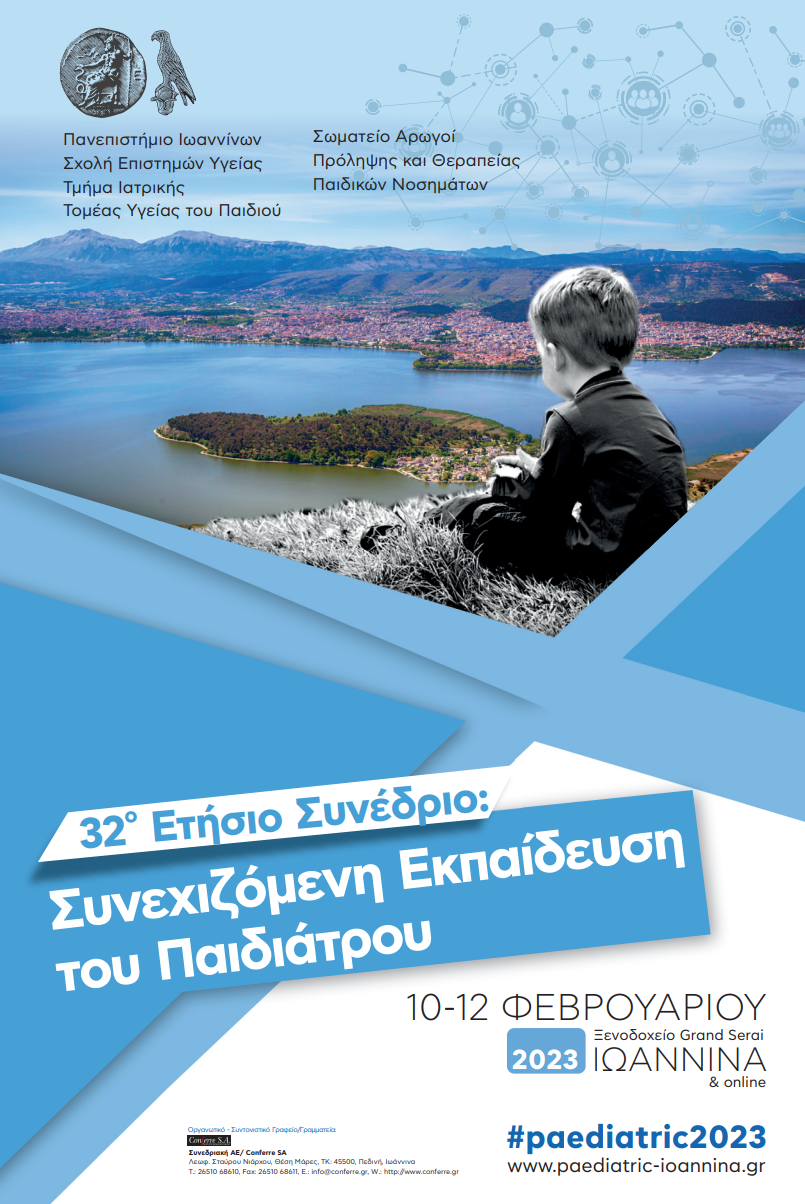 News & Media
News & Media

Οral announcement on "Τhe role of direct detection of Myxovirus Resistance Protein A in the differential diagnosis of viral and bacterial respiratory infections"
An oral announcement on "Τhe role of direct detection of Myxovirus Resistance Protein A in the differential diagnosis of viral and bacterial respiratory infections" was given by the Pediatric Department of the General Hospital of Ioannina "G. Hatzikosta" at the 32nd Annual Conference: Continuing Education of the Pediatrician.
According to the announcement "Sixteen children with fever and symptoms of respiratory tract infection, hospitalized over 42 days (from 14/12/22 to 24/01/23), aged 21 days to 10.41 years (mean age 4.41 years), were studied. A detailed history was taken, clinical examination was performed, laboratory testing for infection (complete blood count and urine, E.S.R., CRP, blood culture and additional tests as appropriate) and rapid test for qualitative detection of MxA and CRP in whole blood by immunochromatography were performed".
The results showed that "62.5% of the patients had positive MxA and negative CRP, 25% had both positive MxA and CRP and 12.5% had negative MxA and positive CRP. This result is interpreted as follows: 87.5% of the patients in the study had a viral respiratory infection and only 12.5% had a bacterial infection, a finding that was confirmed both by the subsequent laboratory testing and the progression of the disease".
As a conclusion it was mentioned that "Respiratory infections are the main cause of admission of paediatric patients to the ED, especially during winter months, and the most common reason of antibiotic administration. Early differentiation of viral from bacterial infections is not always easy. Rapid qualitative detection of MxA can contribute to this differentiation already within the first 24 hours of illness. In this way, unnecessary administration of antibiotic therapy can be avoided as well as diagnostic tests, duration and overall hospitalisation costs can be reduced".